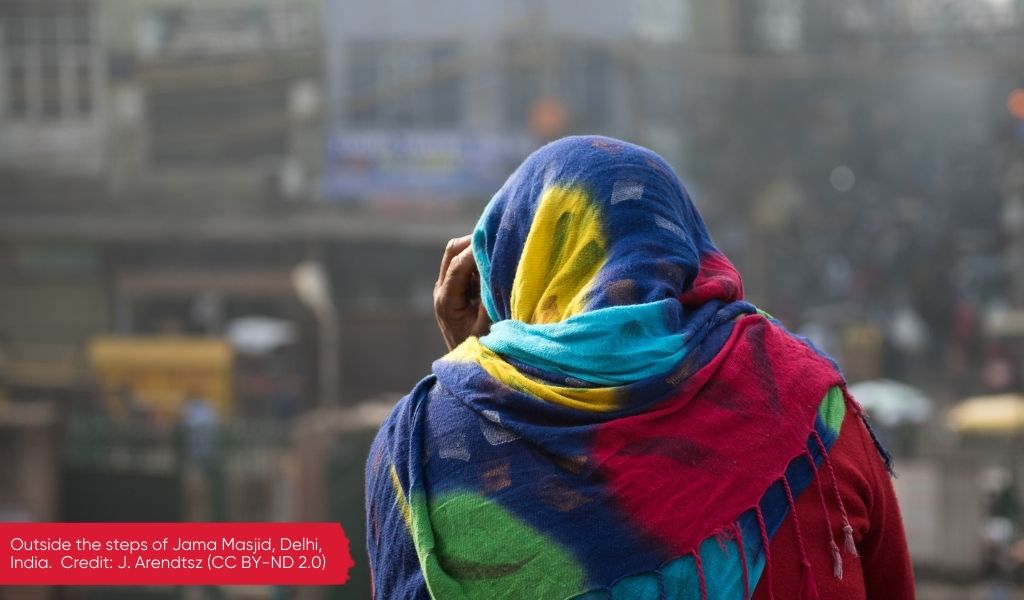Today we celebrate International Day of Persons with Disabilities, which promotes the rights and well-being of persons with disabilities in all spheres of society and development, and aims to increase awareness of the situation of persons with disabilities in every aspect of political, social, economic and cultural life. The religious identity of people with disabilities is an underexplored aspect of their intersecting identities which have different effects on their being – sometimes enhancing their lives and sometime exposing them to further discrimination and marginalisation.

We recently carried out research under the Coalition for Religious Equality and Inclusive Development (CREID) programme which explored the situation of people with disabilities from minority religious backgrounds. More specifically, we used a participatory qualitative methodology to gather case studies describing experiences of Christians and Muslims with disabilities in Chennai, India, the details of which will be shared in our forthcoming CREID Working Paper but here is a snapshot of our findings.
India’s unique religious history
India has a complex religious history, with faith and spirituality playing an important role in everyday life. Hinduism is the majority religion, and there are many minority religions. India also has a complicated class system and entrenched gender structures, with disability being another important identity. Many aspects that make up a person’s identity were found to intersect and interconnect. Religious minority affiliation, caste, disability status and gender were all found to have the potential to add layers of discrimination and marginalisation.
Ineffective legal and human rights frameworks for addressing discrimination
Our research found that despite the existence of various legal and human rights frameworks in India, discrimination based on factors (or a combination of factors) including faith, disability, caste and gender is still happening.
Additionally, no single experience is universal. Discrimination was found to be explicit and implicit. Characteristics that form the basis for discrimination were found to be both visible and invisible. Discrimination based on a single characteristic or multiple intersecting characteristics were found to exist both between and within religious communities, as well as within wider society.
People who belong to minority religions in India (i.e. those who are not Hindu) often face disadvantage and experience exclusion or discrimination, including examples listed below which were experienced by our participants:
- reduced access to job, promotions and services
- negative and abusive treatment
Our findings compliment other research that has found that discriminatory experiences in India were greatly exacerbated by Covid-19 with Muslims being blamed for spreading the virus (and targeted as a result) whilst those working on the frontline, such as Christian Dalit sanitary workers, were more vulnerable and at higher risk of contracting Covid-19 through lack of Personal Protective Equipment.
We also found that people with disabilities experience marginalisation and discrimination due to both attitudinal and physical barriers, including being excluded from practicing their religion by religious leaders and/or members of the congregation, which violates multiple human rights including Article 18 of the Universal Declaration of Human Rights – the right to freedom of thought, conscience and religion.
Some of the participants of our study who had disabilities seemed to have become so used to being marginalised that they came to expect it. This resulted in them excluding themselves from full participation in society due to the prejudices they had experienced and expected to experience again.
Intersecting inequalities and multiple layers of potential discrimination
Religious affiliation and other factors such as gender and social class, intersect with disability to impact on social inclusion. For example, we found that while being a Dalit results in discrimination based on caste, being a Christian Dalit makes life even more difficult, as they do not receive the same access as Hindu Dalits to jobs and services. Disability added an additional level of discrimination.
One research participant shared with us that they had faced discrimination based on three of aspects of their identity: “In my office I have been discriminated basically based on my disability, then on my being a Christian and then for being a Dalit”
The difference made by inclusive practice
Not all of our findings were negative. We found that when people with disabilities are included in society, regardless of other characteristics, for example, the impact on their life and the lives of others can be very positive.
Inclusive practice in society and in their religious communities (for example, being made to feel welcome by religious leaders and provided with reasonable accommodation) was shown to result in a feeling of acceptance, the strengthening community ties, and the creation of new opportunities to contribute in a meaningful way to society.
One research participant noted “I have been given that worthy feeling that I am too a worthy creature of God and I deserve all the dignity to live as a ‘normal’ human person. This did not happen overnight. All the worship methods, providing me with leadership opportunities and a place in the choir and even small positive gestures over a period of time gave me such a hope”.
The global disability rights movement have often drawn inspiration from the Martin Luther King, Jr. quote: “injustice anywhere is a threat to justice everywhere”. Our research found that in the context of India and the complex identities of those who live there, this quote has never been more relevant.
Want to know more about CREID?
The CREID programme is providing research evidence and delivering practical programmes which aim to redress the impact of discrimination on the grounds of religion or belief, tackle poverty and exclusion, and promote people’s wellbeing and empowerment. It is invested in highlighting how these inequalities are largely invisible in development programmes, which are generally “blind” to religious inequalities and what can be done about it.
If you have found this blog interesting, why not sign up to the CREID newsletter and follow @CREID_Dev on Twitter and be the first to know when our paper on freedom of religious belief and people with disabilities in India is published.